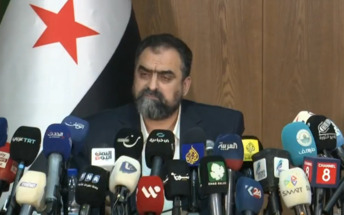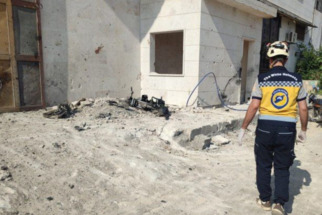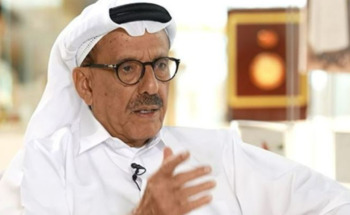-
Calls for Autonomy in Eastern Sudan Raise Fears of Escalating Tensions

Calls for granting autonomy to Eastern Sudan have raised concerns about the potential escalation of tensions in the region, which has served as the base for the Sudanese army since the outbreak of the conflict in Khartoum. A group of the Beja tribes, the most prominent in the area, has demanded that the Sudanese government grant autonomy to the region in accordance with a previous agreement made with the "Beja Congress" during the presidency of former President Omar al-Bashir.
In a statement issued by Police General Osman Ahmed Faqray, one of the prominent leaders in Eastern Sudan, it was emphasized that the region is facing delicate conditions that necessitate urgent intervention to resolve the current crisis. He noted that disruptions at the ports and the paralysis of economic activities reflect a deep crisis rooted in unresolved historical issues since independence.
The statement also mentioned that the 2004 agreement, established by leaders of the Beja Congress, was a crucial step towards achieving stability, development, and peace. However, it was not implemented and was disregarded in favor of the Eastern Front agreement, which was imposed with an external agenda, exacerbating the crises instead of resolving them.
The statement called on the country's leadership to reconsider the current situation and take serious steps to activate the 2004 agreement and grant autonomy to the region, starting with the appointment of a governor for the region and the implementation of the agreement's provisions. It indicated that the current situation requires not only military solutions but also a comprehensive political vision that takes into account the security and social complexities, warning that ignoring these conditions could lead to a worsening of the conflict and the spread of war to the east.
Political analyst Ammar al-Baqir warned of the repercussions of the "suppressed crisis" in Eastern Sudan, due to the economic and developmental marginalization faced by the region. He explained that Eastern Sudan is a powder keg that could explode at any moment, especially with the emergence of multiple militias following the government's leadership moving to the city of Port Sudan. Al-Baqir pointed out that most of these militias are not linked to the Beja ethnicity, which has heightened tensions and increased demands for autonomy, even though this demand remains individual and not universally agreed upon among all Beja components. However, this ethnicity may unite around this demand as the conflict continues.
He emphasized that a call for autonomy, if it comes solely from the Beja ethnicity, will trigger a significant crisis in the region, given the presence of other population groups that may not agree with it, potentially leading to renewed chaos in light of the rampant availability of weapons.
He also noted that the "Eastern Division Militia," which has recently emerged and represents the Bani Amer tribe, could complicate matters if it does not align with the demand for autonomy.
On the other hand, political analyst Omar Mohammed Noor downplayed the importance of the call for autonomy at this time, stressing that this matter requires a legitimate government to define it. He explained that the current situation is disrupted due to war, and there is no constitution or government that grants any entity autonomy or federal status.
Noor affirmed that current demands will only have an impact if the region's population unites around them and escalates them through protests. He mentioned that the constitutional document governing after the fall of the previous regime stipulated a federal system of governance in Sudan, which was supposed to be resolved during the transitional period through a special conference that was not held due to the coup against the transitional government in 2021.
You May Also Like
Popular Posts
Caricature
BENEFIT Sponsors BuildHer...
- April 23, 2025
BENEFIT, the Kingdom’s innovator and leading company in Fintech and electronic financial transactions service, has sponsored the BuildHer CityHack 2025 Hackathon, a two-day event spearheaded by the College of Engineering and Technology at the Royal University for Women (RUW).
Aimed at secondary school students, the event brought together a distinguished group of academic professionals and technology experts to mentor and inspire young participants.
More than 100 high school students from across the Kingdom of Bahrain took part in the hackathon, which featured an intensive programme of training workshops and hands-on sessions. These activities were tailored to enhance participants’ critical thinking, collaborative problem-solving, and team-building capabilities, while also encouraging the development of practical and sustainable solutions to contemporary challenges using modern technological tools.
BENEFIT’s Chief Executive Mr. Abdulwahed AlJanahi, commented: “Our support for this educational hackathon reflects our long-term strategic vision to nurture the talents of emerging national youth and empower the next generation of accomplished female leaders in technology. By fostering creativity and innovation, we aim to contribute meaningfully to Bahrain’s comprehensive development goals and align with the aspirations outlined in the Kingdom’s Vision 2030—an ambition in which BENEFIT plays a central role.”
Professor Riyadh Yousif Hamzah, President of the Royal University for Women, commented: “This initiative reflects our commitment to advancing women in STEM fields. We're cultivating a generation of creative, solution-driven female leaders who will drive national development. Our partnership with BENEFIT exemplifies the powerful synergy between academia and private sector in supporting educational innovation.”
Hanan Abdulla Hasan, Senior Manager, PR & Communication at BENEFIT, said: “We are honoured to collaborate with RUW in supporting this remarkable technology-focused event. It highlights our commitment to social responsibility, and our ongoing efforts to enhance the digital and innovation capabilities of young Bahraini women and foster their ability to harness technological tools in the service of a smarter, more sustainable future.”
For his part, Dr. Humam ElAgha, Acting Dean of the College of Engineering and Technology at the University, said: “BuildHer CityHack 2025 embodies our hands-on approach to education. By tackling real-world problems through creative thinking and sustainable solutions, we're preparing women to thrive in the knowledge economy – a cornerstone of the University's vision.”
opinion
Report
ads
Newsletter
Subscribe to our mailing list to get the new updates!





















